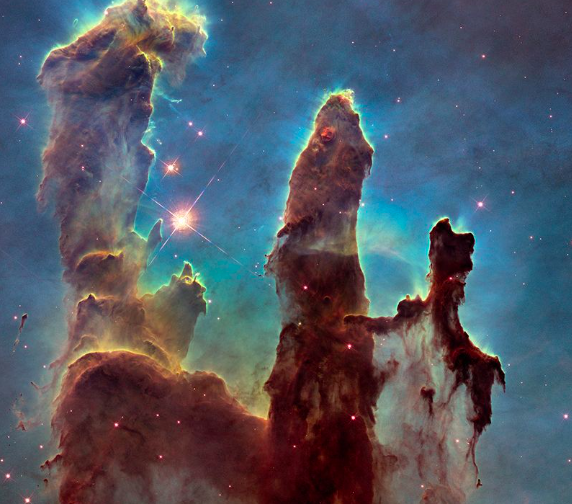Not a Being, but Being Itself
Who is God?
This is not a question of faith. It is a question of reality of Being. And Vedanta, the ancient spiritual science rooted in the Vedas and Upanishads, doesn’t ask you to believe in a deity. It asks you to realize what has always been true. God, according to Vedanta, is not an external person watching from the skies. God is not defined by a name, gender, or form. In fact God is not a ‘who’ but a ‘what.’
Not a being… but Being itself.
Not a thing… but the awareness in which all things appear.
The Fundamental Truth: Tat Tvam Asi (You Are That)
One of the great mahāvākyas (great statements) of the Upanishads is:
तत् त्वम् असि
Tat Tvam Asi — That Thou Art.
This doesn’t mean “you are God” in the egoic sense.
It means: The consciousness in you the still, silent witness behind your thoughts is the same reality that pervades the cosmos.
There is no separation between you and the source.
You are not a drop in the ocean. You are the ocean, appearing as a drop.
God is Not Separate: The Illusion of Duality
Vedanta calls the illusion of separation Maya the appearance of multiplicity where only unity exists.
We think God is there, and we are here.
We think we are the body-mind, and God is some external force we must please.
But Vedanta gently reveals:
The seeker and the sought are one.
The knower and the known are illusions.
There is only Knowing, only Being, only Consciousness.
In this view, God is not something you worship. God is what you are, when the veil of illusion drops.
The Nature of God in Vedanta: (सत् चित् आनन्द) Sat-Chit-Ananda
Vedanta describes the nature of God (or Brahman) in three simple yet profound words:
- Sat – Existence (that which is, never ceases to be)
- Chit – Consciousness (pure awareness, unchanging witness)
- Ananda – Bliss (not emotional happiness, but peace beyond duality)
Brahman is not an object, it is not confined to time or space. It cannot be seen or heard, because it is that by which seeing and hearing are possible.
Imagine the screen on which your dreams appear does the screen move with the characters? No.
Likewise, Brahman remains unchanged, while this universe dances upon it.
So Then… Who Are You?
Vedanta invites you to turn the question inward.
Instead of asking, Who is God?
Ask: Who is the one asking?
Behind your name, your past, your roles, your thoughts, there is an unchanging presence The awareness that was there when you were a child. The awareness that watches your mind.
That is you. That is God. That is Brahman.
Not a concept to be grasped but a truth to be realized.
Why This Matters Today
In a world overwhelmed by suffering, identity, ego, and division, the Vedantic understanding of God is not escapism. It is freedom.
This is not about following rituals, scriptures, or dogmas. It is about realizing that:
- You are not separate from life.
- You are not the story you’ve been told.
- You are already whole, because you are That which all stories arise in.
To see God is not to look up it is to look within.
Final Reflections: God is Not a Destination, But the Ground of Your Being
Vedanta doesn’t offer belief. It offers direct knowledge (jnana).
Not faith in a being but recognition of Being itself.
To know God, in the Vedantic sense, is to be free from fear, from identity, from illusion.
Not through blind belief. But through inquiry, awareness, and surrender of the ego.
“Brahman is real. The world is an appearance. The Self is Brahman.” — Adi Shankaracharya
Your Invitation:
Next time you meditate, don’t try to reach somewhere. Just be aware. The space between thoughts. The silence in you. Stay there. That’s where God has been waiting, all along.


Leave a Reply